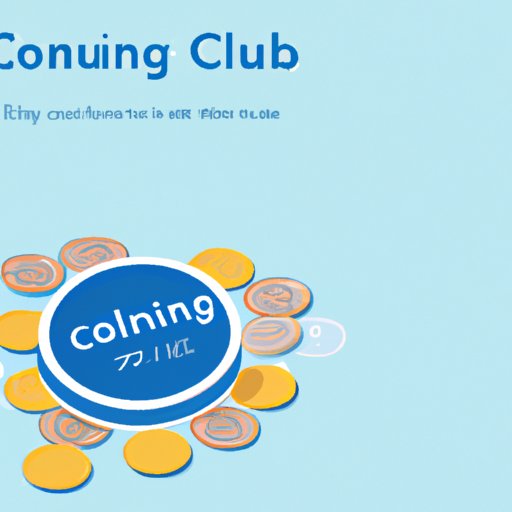Introduction
Coin collecting is a hobby that has been enjoyed by people from all walks of life for centuries. It can be a great way to learn about history, economics, and art, as well as providing a sense of accomplishment when you complete a set. In this article, we will explore the basics of how to start a coin collection, including researching different types of coins, learning about coin grading systems, setting a budget, finding a coin storage system, and joining a local coin club or an online community.

Research Different Types of Coins
When it comes to coin collecting, there are a wide variety of coins available to choose from. Depending on your interests, you may want to focus on a particular type of coin, such as ancient coins, U.S. coins, world coins, or even tokens and medals. Researching different types of coins can help you determine which type best suits your interests and budget.
For example, if you are interested in U.S. coins, you can research different denominations, mint marks, and dates. This can help you narrow down your choices and decide which coins you would like to add to your collection. You can also look for coins with interesting stories or designs, such as the 1943 copper penny, which was mistakenly struck on copper instead of zinc.
Learn About Coin Grading Systems
Coin grading is an important part of coin collecting. It helps determine the value of a coin by describing its condition. There are several different coin grading systems, such as the Sheldon Scale, the American Numismatic Association (ANA) Grading System, and the Professional Coin Grading Service (PCGS). Each system has its own criteria for grading coins, so it’s important to familiarize yourself with each one before attempting to grade coins.
It is also important to understand how to properly grade coins. For example, coins should be examined under magnification to look for surface marks, scratches, and other signs of wear. Additionally, coins should be checked for authenticity by looking for signs of tampering or alteration. By understanding how to properly grade coins, you can ensure that you are getting the most accurate appraisal of a coin’s condition and value.

Set a Budget for Collecting Coins
Setting a budget for coin collecting is essential for any collector. Establishing a budget can help you manage your spending and ensure that you don’t overspend on coins. When deciding on a budget, take into account the type of coins you are looking for and the condition they are in. Additionally, consider where you plan to purchase your coins from, as some dealers may charge higher prices than others.
One way to save money when collecting coins is to buy them in bulk. Buying coins in bulk can be beneficial because it allows you to get more coins for less money. Additionally, buying coins in bulk can help you build up your collection quicker, as you will have a greater selection of coins to choose from.
Find a Coin Storage System
Having a proper storage system for your coins is essential in order to keep them safe and in good condition. There are several different options available, depending on your needs. For example, you can use albums, folders, holders, boxes, or trays. Each of these has its own advantages and disadvantages, so it’s important to do your research to find the right storage system for your collection.
Additionally, when choosing a storage system, consider the type of coins you are collecting. Some coins may require more protection than others, so it’s important to make sure your storage system is able to provide the necessary protection. Additionally, consider the size and weight of your coins, as some storage systems may not be able to accommodate larger or heavier coins.

Join a Local Coin Club or an Online Community
Joining a local coin club or an online community can be a great way to connect with other coin collectors and learn more about the hobby. Being part of a local coin club can provide access to resources such as coin shows, auctions, and educational seminars. Additionally, many clubs offer discounts on coins and supplies, which can be beneficial for those on a budget.
Online communities can also be a great resource for coin collectors. These communities can provide information about coins, tips and advice, and the opportunity to connect with other collectors. Additionally, many online communities have forums where members can discuss their collections and ask questions.
Conclusion
Coin collecting is a fascinating hobby that can provide enjoyment and a sense of accomplishment. To get started, research different types of coins, learn about coin grading systems, set a budget, find a coin storage system, and join a local coin club or an online community. With a little bit of knowledge and dedication, you can start building your own unique coin collection.
(Note: Is this article not meeting your expectations? Do you have knowledge or insights to share? Unlock new opportunities and expand your reach by joining our authors team. Click Registration to join us and share your expertise with our readers.)
